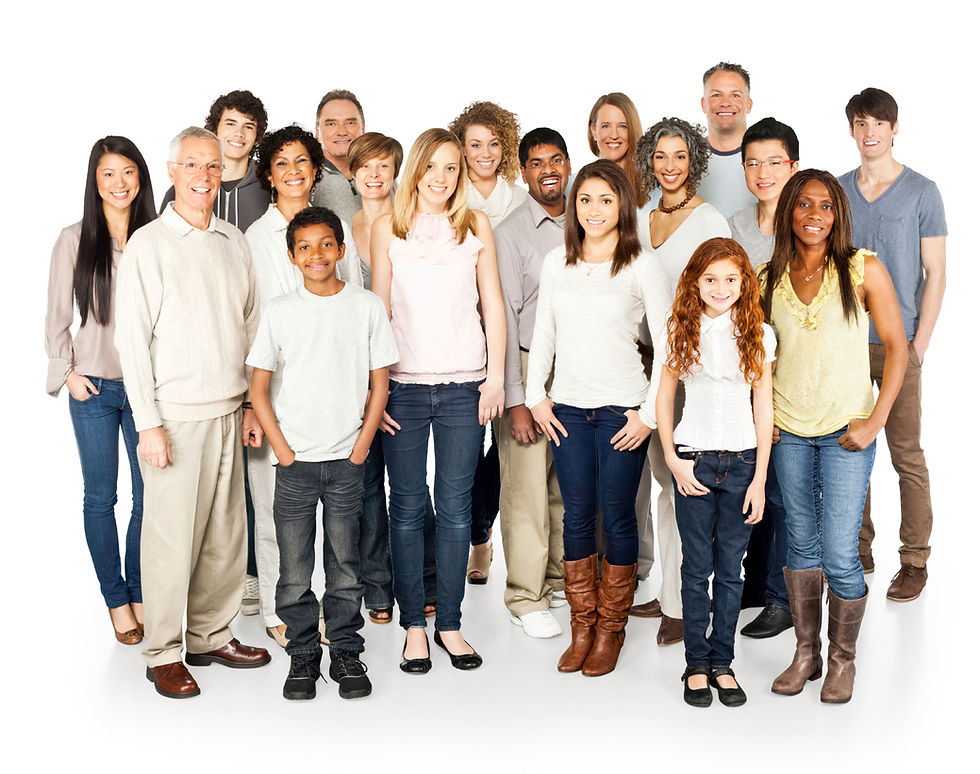Who is My Family
- Carol Teitelbaum, MFT
- Nov 10, 2017
- 3 min read
Updated: May 5, 2018
Written by Carol Teitelbaum, MFT
Reprinted from RECOVERY ILLUSTRATED MAGAZINE
Family can be two parents who created a child, and provided that child with an extended family. Included in that extended family might be, siblings, aunts, uncles, cousins and grandparents. Or, family could be any combination of players. Two moms, two dads, one mom, one dad, step-parents, adoptive parents, or a group of people who have helped raise the child. It might be foster parents, a group home or even a shelter.
When we say the word “family”, our definition will come from what we learned from our own family of origin, or from what we watched in movies or on TV.
Whatever it is, children need one!
Our It Happens to Boys group was speaking at Father’s Heart Ranch, where boys who can’t get along anywhere else are sent. They have all been abused, resulting in some being very angry.
We were there at Christmas time and the children’s wish (even some of those who had been abused by a family member) was to be home for Christmas, with their family.
Family can build us up or tear us down, depending on what our parents learned about parenting.
Building a child up would include, affection, nurturing, validation, having opportunities to be involved in activities the child enjoys, sports, dance, art or music. Not necessarily what the parent thinks the child should do.
For instance, the dad who relives his childhood through his son’s sports successes. Parents can push their children to do things they do not feel comfortable with, like being in beauty pageants or an artistic son being forced onto a team, playing ball.
I had a male client who came to therapy to boost his self-esteem so that he could go home to his family of origin for Christmas and feel good about himself. He had a difficult childhood and was always made to feel inadequate. This year was going to be different! This year, he was going to be ready, be assertive, set boundaries and speak up for himself.
He worked for weeks, role-playing and journaling until he was certain he was up for the task. He bought some new clothing, got his hair cut and was feeling very good about himself.
He left to go to the East Coast, where his family of origin was living, attempting to return to his childhood home.
Two weeks later, he came in for his appointment. When he sat down on the couch I asked if he would like to share his holiday trip with me?
He said, “Yes!”
I replied, “Tell me how it went.”
He said, “They were singing the same old song.”
In earlier sessions we talked at length about the possibility that his family had not changed since he left. He remembered and acknowledged that was the case. I asked what happened next.
To which he replied, “I sang along. I know all the words by heart.”
He was so disappointed, and feeling like he failed. I reminded him it was just an opportunity to practice his new beliefs and behaviors and that he would have more opportunities to do better in the future.
Often the fantasy of a relationship is better than the actual relationship.
In our fantasy, our parents apologize, and we hug, we cry and say “I love you.” In our imagination things go on from there and we are open, honest and loving with each other.
That rarely happens although, for some involved in recovery programs, it is possible. People can change. Making amends can sometimes result in much improved relations, not because the other person changed, but because we have.
There is a saying among twelve step groups, “Stop going to the hardware store for milk.” What does that mean? If a parent has never been affectionate, loving or caring, they probably won’t magically change their behavior. We can, however, accept them for who they are, and learn about their childhoods, if they can willingly share that information with you. And imagine what their life was like.
We can only give what we know, as as Herb Kaigan says, “We can’t know what we don’t know and we will only know it when we learn it.”
The good news is, once recovery is in motion, we can choose how we will behave. We can have sponsors, mentors, and peers who will be our role models, show us healthy affection and listen when we need to talk. Creating a healthy surrogate family can help change our life.
It is never too late to learn. One of the men in my group did not begin his recovery process until he was 65. Today, his life is filled with love and friendships and most importantly, he learned how to have fun.
Carol offers two free groups for men abused as children. See: www.creativechangeconferences.com
Carol Teitelbaum is a Licensed Marriage and Family Therapist and holds a Bachelor’s degree in Psychology and a Master’s degree in Education, Educational Psychology, Counseling and Guidance, both from Cal State Northridge. For more see: www.creativechangeconferences.com




Comments